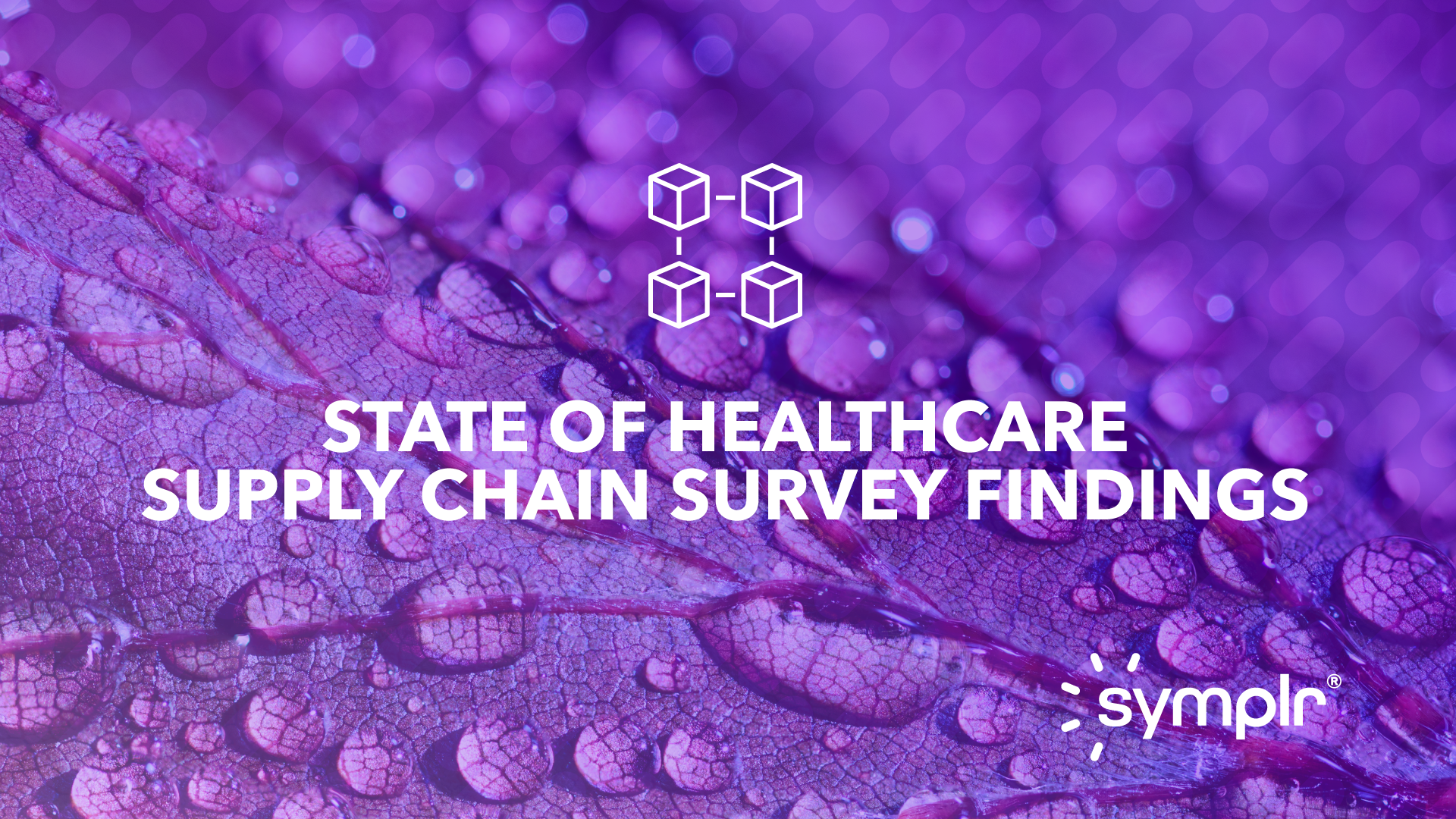
Margin pressures, inconsistent processes, & staffing challenges drive need for greater financial & clinical collaboration
HOUSTON – February 27, 2024 – symplr®, a leading provider of enterprise healthcare operations software, unveiled the results from the company’s recent State of Healthcare Supply Chain Survey. The results emphasize supply chain leaders’ ongoing commitment to optimize spending and improve patient outcomes amid persistent margin challenges in health systems. They also underscore the importance of operational efficiency, standardization, and evidence-based decision making while bridging gaps between clinical and supply chain stakeholders to address inflation, backorders, and product shortages.
Key priorities identified by supply chain leaders include cost savings (63%), strategic resource allocation (24%), and process standardization (8%), driven by top challenges such as margin pressures (28%), inconsistent processes (22%), and staffing or resourcing (20%).
Supply chain costs are expected to rise due to global bottlenecks, reflecting broader market trends highlighted by a recent Deloitte study. This reinforces the need for enhanced collaboration between clinicians and supply chain leaders, as well as the need for data-driven approaches when evaluating and introducing new products in their provider organizations. Notable survey findings from symplr's State of Healthcare Supply Chain include:
- Nearly half (48%) reported the most significant barrier to evidence-based decision-making at their organizations was stakeholders having different priorities and operating in silos
- Less than a third (28%) said they were very confident they had a unified approach to new product evaluation and introduction across their organization
- Only 32% said they were very confident their organization accurately tracks savings targets associated with their capital and operational budgets
- Only 19% were very confident their physicians/clinicians are supportive of supply chain activities
- About a third (32%) said their supply chain team is not fully staffed to pre-pandemic levels
“At our organization, we prioritize creating cross-functional teams, including clinical representation, to unify stakeholders, ensure voices are heard, and find solutions that provide clinical and financial value, said Janie Ott, Vice President of Spend Management at The University of Kansas Health System. “Breaking down silos starts with conversations that build trust and peer-to-peer discussions that weave expertise together, providing the foundation for impactful change.”
The survey was based on insights of nearly 100 VPs of Supply Chain, Chief Supply Chain Officers, and Directors of Supply Chain at U.S.-based hospitals and health systems.
Download the State of Healthcare Supply Chain infographic to view additional survey findings.
About symplr
symplr is a leader in enterprise healthcare operations software and services. Trusted by leaders for more than 30 years, our solutions are found in 9 of 10 U.S. hospitals where our cloud-based solutions drive better operations for better outcomes. Our provider data management, workforce management, compliance, quality and safety, and contract and supplier management solutions improve the efficiency and efficacy of healthcare operations. This enables caregivers to quickly handle administrative tasks, so they have more time to do what they do best: provide high-quality patient care. Learn how at www.symplr.com.